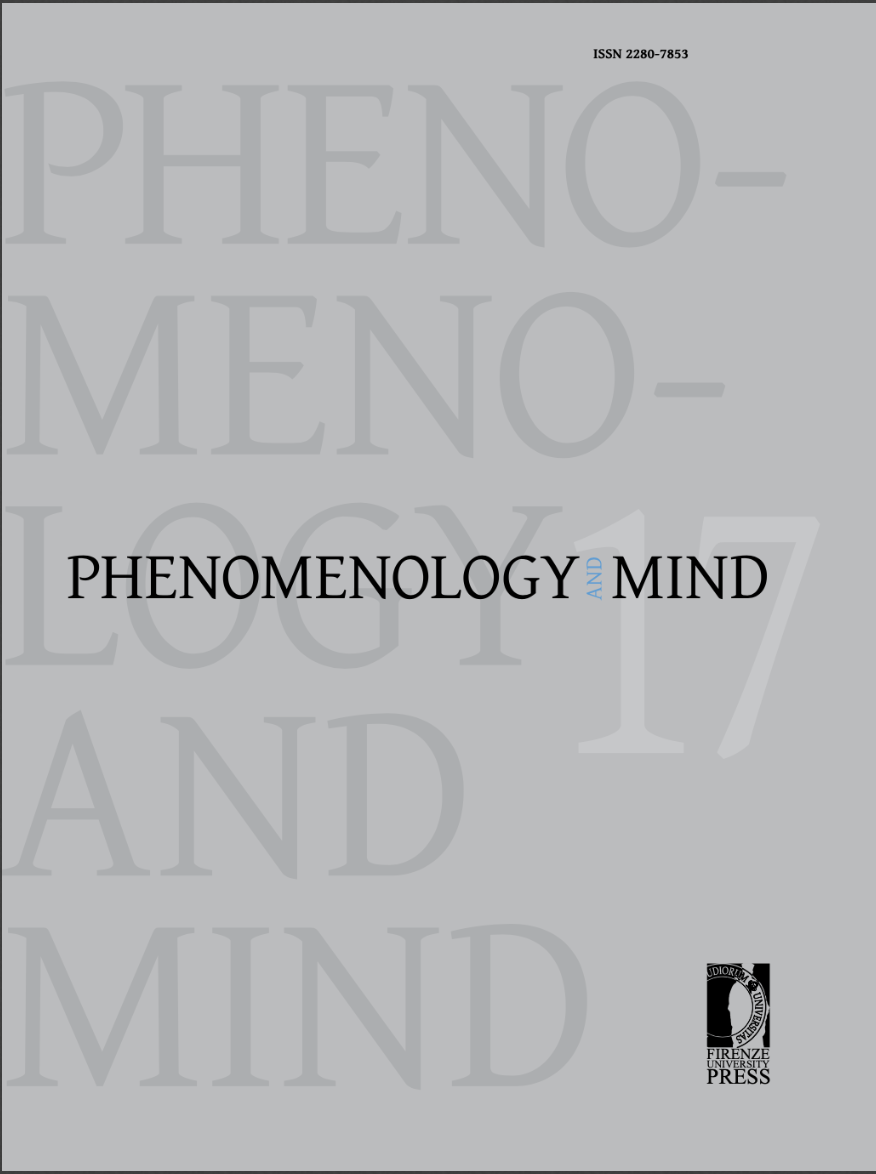Published 2016-11-27
Keywords
- ecological theory of perception,
- affordance,
- agency
How to Cite
Abstract
Today embodiment is a critical theme in several branches of the contemporary philosophical debate. The term embodiment refers to the role of an agent’s own body in his situated life, suggesting the existence of a bodily root for several experiential and cognitive abilities. A metaphor, that of the root, which aims at establishing a constitutive participation of the body in what we usually consider the domain of the mind. As other philosophical concepts, the notion of embodiment, as well as the idea of embodied mind, lacks of an explicit and shared definition, therefore, is possible to find many different uses of it. Works concerning “embodiment” cover many fields of research such as those concerning the nature of abstract thought (Lakoff & Núñez 2000), artificial intelligence (Clark 1998) and social cognition (Sinigaglia 2009). The aim of this paper is to define a path linking considerations from the phenomenological tradition with recent theoretical developments and experimental evidence. This will make it possible to show that the identification of the bodily roots of experience has the consequence to involve a series of theoretical and experimental consequences leading towards an enactive and ecological approach to perception.

